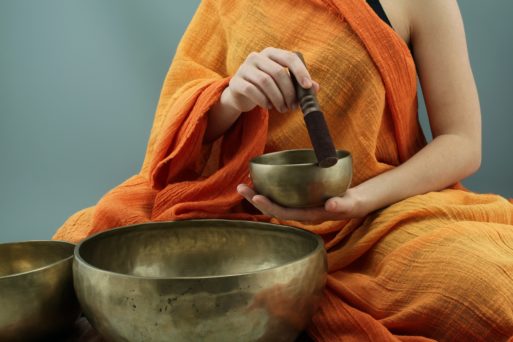
Harpists tailor playing to the physiological changes they observe to help dying patients find peace and ease their transition.
Witnessing a dying person firsthand is a life-changing experience, and one I wish I had been better prepared for as I sat with my mother on her death day. In those final hours, I combed my mind for ways to ease her transition. Even though she was mostly unresponsive, I know she could hear my voice as I fumbled through what to say to her. If I could go back and do it again, I would play her the music she loved. I think it could have helped me too.
In fact, hearing may be one of the last senses to deteriorate as we go through the dying process. During a 2020 study, scientists measured the brainwaves of actively dying patients and recorded activity in response to sound, suggesting that people still hear as they die.
Music Promotes Relaxation
Just as music has the power to uplift and soothe us in life, so too can it aid our experience through death. Music has been shown to decrease anxiety and pain, promote relaxation, and help patients slow and deepen their breath. Music therapy and music thanatology are growing forms of alternative support in the palliative care field. Trained music therapists use music to relieve physical and psychological pain. Similarly, a music thanatologist can tailor their harp playing to the physiological changes they observe in their dying clients. (Thanatology derives from “Thanatos,” the Greek word for death.) A portable harp can produce the perfect dulcet tones for this sacred experience.
A Choir for Your Loved One
If harp music isn’t your thing, reach out to Threshold Choir to perform your music vigil. A small group of three to four members will surround the bedside and sing in hushed, lullaby voices. Their songs contain simple lyrics that focus on love and release.
Sacred Bowls
Does your loved one walk a less traditional path? A sound healing practitioner can play Himalayan Singing bowls and chant mantras to aid in the dying journey. Authentic singing bowls typically consist of a combination of metal alloys and were originally used by Tibetan monks for spiritual ceremonies. These ancient practices have been shown to relieve tension and boost spiritual well-being.
DIY Music Therapy
Finally, consider gathering your loved one’s favorite songs into a playlist that can be broadcast through wireless Bluetooth speakers. Not only does this give family members the opportunity to “do something,” it can be an incredibly personal way to connect with each other. As a musician and sound healer, music is very important to me, so I started an eclectic Spotify playlist: “Songs for The Dying.” I think my mom would have liked the Benedictine nuns the best. When words fail you as they did me, perhaps a song could be comforting to all.

 Music Can Ease the Dying Process
Music Can Ease the Dying Process



 “Help Me, Helen”
“Help Me, Helen”

 “As Tears Go By” by Marianne Faithfull
“As Tears Go By” by Marianne Faithfull














